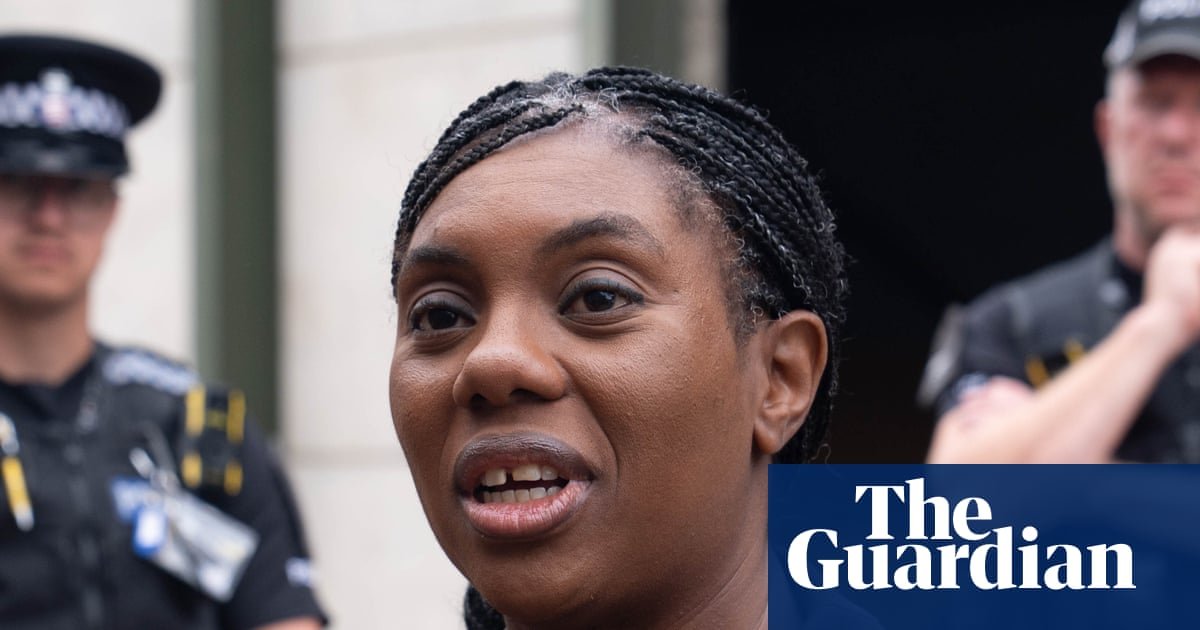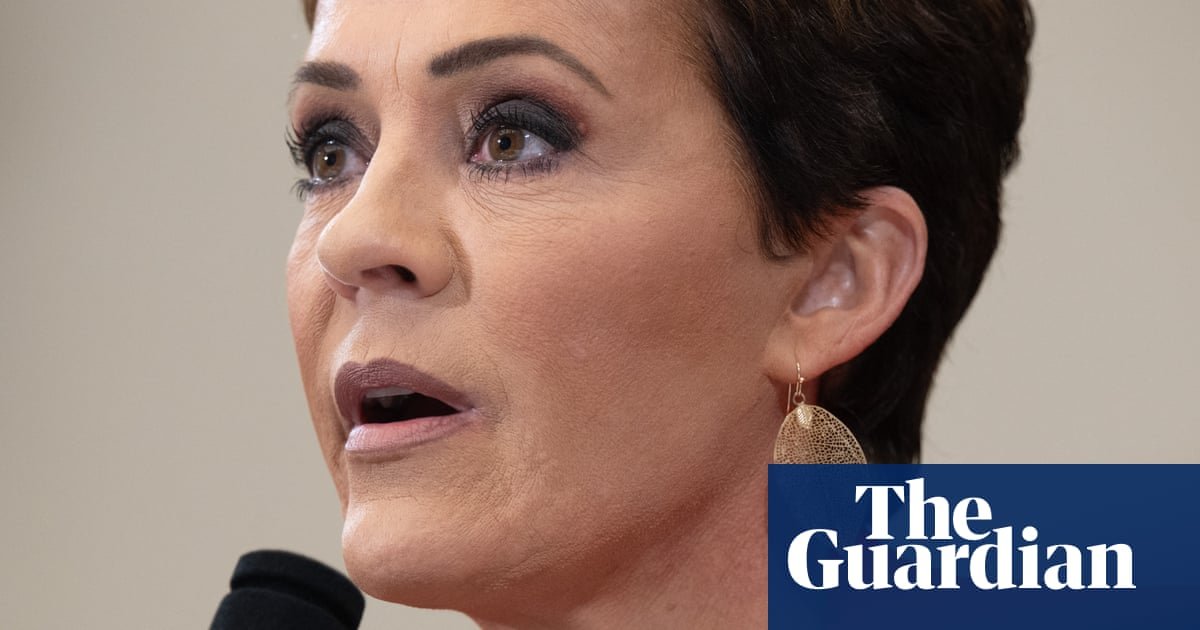Business
Meta Hires From DeepMind and Scale AI to Build Superintelligence Team

Meta has heavily recruited from Google’s AI division DeepMind for its new superintelligence team, bringing in at least 10 previously unreported researchers since July, according to LinkedIn data reviewed by Business Insider.
Meta’s DeepMind hires include researchers who worked on Google’s most powerful AI models, and even one whose work helped Google earn gold at the International Mathematical Olympiad.
Meta has also hired heavily from Scale AI for its safety and evaluations team. At least six of the data labeling startup’s researchers announced their departures to Meta in recent weeks. In June, Meta bought nearly half of Scale AI for $14 billion, tapping its CEO Alexandr Wang to lead its superintelligence effort.
Meta’s recruiting campaign has made headlines for its eye-popping offers and for poaching staff from OpenAI, as the company competes against other Big Tech companies in the AI talent race. DeepMind’s strong presence at Meta Superintelligence Labs, or MSL, shows Google remains a powerhouse of AI research as well.
Meta has also invested in and hired from Scale’s research division, which has expertise in fields key to improving chatbots and making sure they don’t produce toxic or harmful content.
“We operate one of the most important research teams in AI, and we’re growing it. The moves of a small number of employees to Meta as part of the transaction are a distinct dynamic from the other companies mentioned in this story,” Joe Osborne, a Scale AI spokesperson, told Business Insider in a statement.
Meta declined to comment. Google did not respond to a request for comment from Business Insider. Business Insider also reached out to the researchers Meta hired from Google and Scale AI for comment.
Meta targets DeepMind
One of Meta’s most notable hires is Yuanzhong Xu, a veteran Google researcher who contributed to several of the search giant’s most prominent AI initiatives.
Xu, who previously held a senior engineering position at Google DeepMind, was instrumental in the development of LaMDA, the company’s conversational AI model family, and PaLM 2, a large language model that served as the foundation for Gemini, Google’s flagship family of generative AI models. Xu’s work also helped power Gemini’s development.
Xu’s LinkedIn profile says that he now works at “TBD” at Meta, a likely reference to a unit within Meta’s Superintelligence Labs dedicated to training the company’s most advanced AI models.
Meta also hired Tong He, whose work Google credited with helping it achieve gold medal-level performance at the International Mathematical Olympiad in July. Meta hired three other DeepMind researchers behind the win, The Information reported at the time.
Another former DeepMind researcher, Mingyang Zhang, who Meta hired in July, has worked on helping large language models retrieve information effectively.
Meta has also hired Xinyun Chen, a former DeepMind researcher whose expertise centers on AI systems capable of autonomous code generation and logical reasoning.
Google CEO Sundar Pichai has previously dismissed the impact of Silicon Valley’s raging talent wars, saying its retention remains “healthy.”
Meta hires from Scale AI
Scale AI has a SEAL (Safety, Evaluations, and Alignment Lab) team that oversees crucial areas in AI to help ensure chatbots align with human values, so they don’t do things like spew misinformation or instructions for building a bomb. Evaluations focus on determining an AI model’s performance and how to improve it.
From Scale’s SEAL, Meta recruited Ziwen Han and Nathaniel Li, who both were coauthors on a test for AI models called Humanity’s Last Exam. This test is meant to be the hardest possible test that humans can devise for an AI to take.
Other recent Meta hires from Scale include Alexander Fabbri, Felix Binder, Chen Xing, and Lifeng Jin. Many of them now work at MSL on safety and evaluation-related issues.
These aren’t the first Meta hires from Scale. Days after Meta unveiled its superintelligence team, SEAL’s first leader, Summer Yue, joined the company as part of Meta’s investment in Scale, according to her LinkedIn. She now leads the alignment group at MSL.
Julian Michael, who led SEAL after Yue, made the jump to Meta around the same time.
Have a tip? Contact Pranav Dixit via email at pranavdixit@protonmail.com or Signal at 1-408-905-9124. Contact Charles Rollet via email at crollet@insider.com or on Signal and WhatsApp at 628-282-2811. Use a personal email address, a nonwork WiFi network, and a nonwork device; here’s our guide to sharing information securely.
Business
Tories would maximise North Sea oil and gas extraction, Badenoch to say | Kemi Badenoch

The Conservative party will aim to “maximise extraction” of oil and gas in the North Sea if it wins power, Kemi Badenoch is expected to announce.
Badenoch will use a speech in Aberdeen in the coming days to set out her plans to extract as much oil and gas as possible instead of shifting away from fossil fuels, the Sunday Telegraph reported.
She will announce the Tories plan to overhaul the North Sea Transition Authority, which oversees the issuing of licences, dropping the word transition and replacing its 12-page mandate with a simple order to extract the maximum possible amount of fossil fuel.
Badenoch said Britain “cannot afford not to be doing everything to get hydrocarbons out the ground” to boost growth.
She said: “We are in the absurd situation where our country is leaving vital resources untapped while neighbours such as Norway extract them from the same seabed.
“Britain has already decarbonised more than every other major economy since 1990, yet we face some of the highest energy prices in the developed world.
“This is not sustainable and it cannot continue. That is why I am calling time on this unilateral act of economic disarmament and Labour’s impossible ideology of net zero by 2050.
“So, a future Conservative government will scrap all mandates for the North Sea beyond maximising extraction.
“It is time that common sense, economic growth and our national interest came first, and only the Conservatives will deliver that. We are going to get all our oil and gas out of the North Sea.”
Last month, the energy and net zero secretary, Ed Miliband, accused the Conservatives of being “anti-science” by abandoning a political consensus on net zero.
after newsletter promotion
In the first of what is promised to be an annual “state of the climate” report, the Labour MP set out the findings of a Met Office-led study that detailed how the UK was already hotter and wetter, and faced a greater number of extreme weather events.
Miliband quoted the former prime minister Theresa May, who put net zero targets into law in 2019 and had argued that the real climate zealots were “populists who offer only easy answers to complex questions”. He added: “I couldn’t put it better myself.”
Business
More than 500 workers at Voice of America and other broadcasters to be laid off | Trump administration

The agency that oversees Voice of America and other government-funded international broadcasters is eliminating jobs for more than 500 employees, a Trump administration official said. The move could ratchet up a months-long legal challenge over the news outlets’ fate.
Kari Lake, acting CEO of the US Agency for Global Media, announced the latest round of job cuts late Friday, one day after a federal judge blocked her from removing Michael Abramowitz as VOA director.
US district judge Royce Lamberth had ruled separately that the Republican administration had failed to show how it was complying with his orders to restore VOA’s operations. His order Monday gave the administration “one final opportunity, short of a contempt trial” to demonstrate its compliance. He ordered Lake to sit for a deposition by lawyers for agency employees by 15 September.
On Thursday, Lamberth said Abramowitz could not be removed without the approval of the majority of the International Broadcasting Advisory Board. Firing Abramowitz would be “plainly contrary to law”, according to Lamberth, who was nominated to the bench by Ronald Reagan.
Lake posted a statement on social media that said her agency had initiated a reduction in force, or RIF, eliminating 532 jobs for full-time government employees. She said the agency “will continue to fulfill its statutory mission after this RIF– and will likely improve its ability to function”.
“I look forward to taking additional steps in the coming months to improve the functioning of a very broken agency and make sure America’s voice is heard abroad where it matters most,” she wrote.
A group of agency employees who sued to block VOA’s elimination said Lake’s move would give their colleagues 30 days until their pay and benefits end.
“We find Lake’s continued attacks on our agency abhorrent,” they said in a statement. “We are looking forward to her deposition to hear whether her plan to dismantle VOA was done with the rigorous review process that Congress requires. So far we have not seen any evidence of that.”
They added: “We will continue to fight for what we believe to be our rights under the law.”
In June, layoff notices were sent to more than 600 agency employees. Abramowitz was placed on administrative leave along with almost the entire VOA staff. He was told he would be fired effective 31 August.
The administration said in a court filing Thursday that it planned to send RIF notices to 486 employees of VOA and 46 other agency employees but intended to retain 158 agency employees and 108 VOA employees. The filing said the global media agency had 137 “active employees” and 62 other employees on administrative leave while VOA had 86 active employees and 512 others on administrative leave.
The agency also houses Radio Free Europe/Radio Liberty, Radio Free Asia, Middle East Broadcasting Networks and Radio Martí, which beams Spanish-language news into Cuba. The networks, which together reach an estimated 427 million people, date to the cold war and are part of a network of government-funded organizations trying to extend US influence and combat authoritarianism.
In March, Abramowitz warned that Trump’s attempts to dismantle the VOA would be a “self-inflicted blow” to American national security, saying: “If America pulls off the playing field and cedes it to our adversaries, then they’re going to be telling the narratives that people around the world are going to be hearing, and that can’t be good for America … They’re going to be hearing an anti-America narrative. We need to fight that with truth.”
after newsletter promotion
He added: “The major challenge for the United States in general is this global information war in which countries like China and Russia are essentially really having our lunch. … So, I really feel that we need an organization that is accurate, unbiased, objective, and that tells the truth about America to the rest of the world in the languages that they understand.”
This week, Trump also moved to remove union protections from a handful of federal employees, including those from the VOA.
In response, the American Federation of State, County and Municipal Employees, the nation’s largest trade union of public employees, said: “AFSCME members who fulfill the Congressionally mandated mission to broadcast Voice of America around the globe shine the beacon of freedom on the most oppressive of regimes. Now, because they have been fighting to keep Voice of America’s mission alive, their own voice on the job has been stripped from them. AFSCME will fight this illegal action in court.”
Earlier this year, foreign staff at US-backed media outlets voiced concerns over their safety following Trump’s shuttering of the global media agencies.
Speaking to the Guardian in March, Jaewoo Park, a journalist for Radio Free Asia, said: “We have many co-workers in different services, several of whom came here and sought asylum visas. If their own government knew they worked for RFA [Radio Free Asia] and they went back to their own country, their lives would be at risk.”
“Authoritarian governments have praised what Trump is doing right now … In Burma, Vietnam, Laos, Cambodia, there were people who fought for freedom and democracy, and they came to work at RFA. It’s very risky for them. Their lives are in danger if Radio Free Asia doesn’t exist,” he added.
Business
Vineyards assess damage as wildfire rips through California wine country: ‘A devastating situation’ | California wildfires

Elton Slone and his colleagues at the Robert Craig Winery in Napa Valley had gathered for their annual pre-harvest company party last week – complete with copper pot carnitas and grape tacos – when one of his co-workers noticed an alert on her phone. The Pickett fire, a blaze that had started about 10 miles away near the town of Calistoga, was moving toward their vineyards on Howell Mountain.
Knowing that the Glass fire – a 2020 blaze that damaged numerous wineries and spoiled a year’s harvest – had burned along the same path, Slone hoped no fuel remained for this new fire. “But that was not the case,” he said. Within the week, the winery’s Candlestick Vineyard would become “a sacrificial lamb for the town of Angwin” when firefighters lit a controlled burn on their property to control the larger fire.
Vineyards can make excellent fire breaks because they are typically clear of burnable plant matter, and grape vines themselves are moist enough to be nonflammable. But heat damage and smoke can still destroy a crop.
The Robert Craig Winery lost the entire crop of their Candlestick Vineyard, which would have generated $4.5m in revenue. And Slone estimates about 10% of the vines will need to be replanted – a process that will cost hundreds of thousands of dollars and take a decade to see new bottles of wine ready for market. The team will test grapes on another one of their vineyards closer to harvest to see whether the smoke affected them.
The loss comes at the end of the growing season – after Slone’s vineyard had sunk nearly $1m into farming costs – and is made even more devastating because it’s happened before. The memories of the 2020 Glass fire and 2018 Camp fire, which burned farther east but still sent smoke to blanket Napa’s grapevines, are still fresh. “It’s financially a devastating situation,” said Slone.
The still-burning Pickett fire, which began on 21 August in northern Napa county, quickly burned through 6,800 acres (2,750 hectares), making it the San Francisco Bay Area’s largest wildfire this year. Preliminary estimates show that it caused $65m in agricultural losses, largely to wine grape growers, affecting about 1,500 acres (610 hectares) of agricultural land.
Although that damage is significantly less than that wrought by the Glass fire – which burned through 67,000 acres (27,000 hectares) and racked up $3.7bn in losses – the growing threat of wildfires in arid California has still shaken the wine industry.
“Northern California wine country is one of the treasures of the United States,” said Slone. “It’s something that I think all Americans should be concerned about because it’s a uniquely American thing.”
‘Tastes like a campfire’
Along the west coast, wine grape growers have implemented many strategies to prepare for wildfires – with the support of scientists at the US Department of Agriculture and local universities.
Ben Montpetit, chair of the University of California, Davis’s viticulture and enology department, said in an emailed statement that the industry has employed “barrier sprays to reduce smoke uptake, annual testing to establish baseline smoke marker levels in grapes, and small-lot fermentations after smoke events to assess potential wine impact”.
“Researchers are also investigating which grape cultivars are more sensitive or tolerant to smoke exposure,” he added.
“We’ve made a lot of progress in the preparedness realm,” said Natalie Collins, president of the California Association of Winegrape Growers, who noted the industry established a smoke exposure taskforce after the losses in 2018 to aid growers after wildfires.
The existence of that taskforce hints at a perennial problem for vineyards: though they can often keep wildfire off their acres, there’s little that can keep smoke at bay. And if smoke sits in an area for too long, it can leave grapes tasting ashy, like a campfire.
“Smoke taint issues are kind of fickle,” said Heather Griffin, a partner at Summit Lake Vineyards and Winery. “It depends on the varietal, depends on your ripeness level and depends on how long the exposure was.”
Griffin’s family’s vineyards were saved from the Pickett fire – “They stopped the fire at the end of our ridge up on Howell Mountain,” she said – but they’ll need to send grapes out for testing before harvest to be sure the smoke didn’t taint it.
Protecting the industry
For the first year ever, crop insurers are offering a new coverage option called the fire insurance protection smoke index endorsement, which would insure vineyards for losses due to smoke exposure.
But some growers say the cost of crop insurance has become unattainable after repeated wildfires.
“Our insurance went up so much after the fires of 2020. It literally went from $40,000 a year for really great coverage for all of our properties and inventory, and now it’s $300,000 a year and covers nothing,” said Slone.
For the 95% of Napa valley’s wineries that are family-owned, that cost can be “catastrophic”, he adds.
The wine industry has historically relied on federal funding to support USDA and university research into wildfire preparedness. Although those levels have remained steady despite widespread federal cuts, eight federal wine grape research scientists – including a smoke exposure specialist – were fired and then rehired early in the Trump administration’s Doge-era cuts.
“We want to make sure that an industry like ours continues to be protected,” said Collins, as “we continue to see the writing on the wall in California that wildfires likely will continue to be an issue here.”
It’s possible that some federal disaster relief funding may work its way to affected vineyards, but Griffin says buying wine from those wineries “helps everybody that’s up here”.
“Shoot them an email and buy some of their wine,” added Slone. “They will be the most appreciative people on the planet earth.”
-
Tools & Platforms3 weeks ago
Building Trust in Military AI Starts with Opening the Black Box – War on the Rocks
-

 Ethics & Policy1 month ago
Ethics & Policy1 month agoSDAIA Supports Saudi Arabia’s Leadership in Shaping Global AI Ethics, Policy, and Research – وكالة الأنباء السعودية
-

 Events & Conferences3 months ago
Events & Conferences3 months agoJourney to 1000 models: Scaling Instagram’s recommendation system
-

 Jobs & Careers2 months ago
Jobs & Careers2 months agoMumbai-based Perplexity Alternative Has 60k+ Users Without Funding
-

 Funding & Business2 months ago
Funding & Business2 months agoKayak and Expedia race to build AI travel agents that turn social posts into itineraries
-

 Business1 day ago
Business1 day agoThe Guardian view on Trump and the Fed: independence is no substitute for accountability | Editorial
-

 Education2 months ago
Education2 months agoVEX Robotics launches AI-powered classroom robotics system
-

 Podcasts & Talks2 months ago
Podcasts & Talks2 months agoHappy 4th of July! 🎆 Made with Veo 3 in Gemini
-

 Podcasts & Talks2 months ago
Podcasts & Talks2 months agoOpenAI 🤝 @teamganassi
-

 Jobs & Careers2 months ago
Jobs & Careers2 months agoAstrophel Aerospace Raises ₹6.84 Crore to Build Reusable Launch Vehicle


